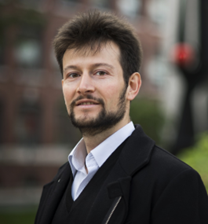Key Facts
 Abstract:
Abstract:
Biological functions are reflected in the natural variation of proteome configurations across individual cells. Single-cell proteomics methods may decode this variation and empower inference of biological mechanisms with minimal assumptions. This promise is beginning to be realized by sensitive and scalable mass spectrometry methods. Specifically, prioritized single-cell mass spectrometry analysis (pSCoPE) allows for consistent and sensitive analysis of thousands of proteins of biological interest, and multiplexed data independent acquisition methods (plexDIA) afford high throughput and data completeness. These methods have allowed us to interpret protein covariation in different biological systems, including primary macrophages and melanoma cells expressing markers for drug-resistance priming. The focus of the talk will be on conceptual innovations, new strategies for parallelizing data acquisition and interpretation towards molecular mechanisms.
Bio:
Nikolai Slavov received undergraduate education from MIT and a doctoral degree from Princeton University for characterizing the coordination of cellular growth with gene expression and metabolism. The Slavov laboratory pioneered experimental and computational methods for single-cell proteomics and used them to connect protein covariation across single cells to functional phenotypes, including macrophage polarization, emergence of drug resistance priming, early mammalian development, and stem cell differentiation. These technologies provided a foundation for establishing Parallel Squared Technology Institute (PTI). Prof. Slavov organizes the annual single-cell proteomics conference and contributes to organizing other leading conferences.

